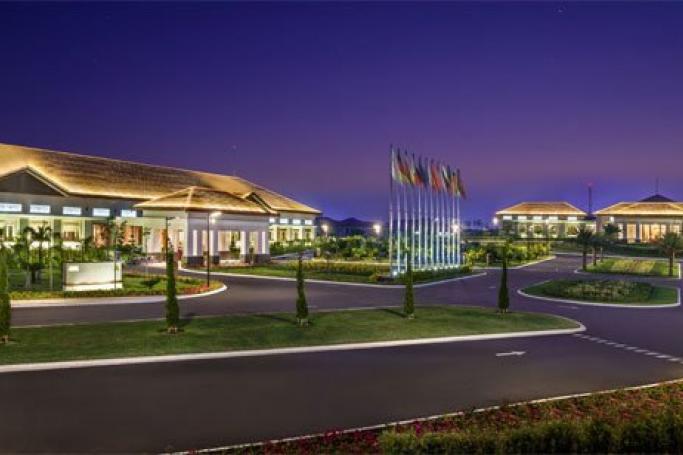Myanmar wants to boost its food and hospitality standards to serve growing demand from international tourists, who are expected to number 5 million this year.
Hotels and Tourism Minister Htay Aung called tourism one of Myanmar's fastest-growing industries, with the growth rate tripling since the country opened its doors to foreign investors in 2011.
Myanmar tourism saw 51% growth to 3 million foreign arrivals last year and expects 5 million this year, an increase of about 67%.
The Golden Land welcomed 1 million foreign travellers in the first four months of 2015, up 7% year-on-year. It aims to have 10 million foreign tourists by 2020.
Many international hotel chains are entering the country — Accor Group, Hilton, Kempinski, Dusit, Best Western and Royal Park recently opened hotels in Yangon, Nay Pyi Taw, Inle Lake, Ngapali Beach and Bagan, with many more planned.
"This is just the beginning for Myanmar, and we hope to embrace more investors and tourists in the future," Htay Aung said.
The Myanmar government is tearing down barriers to attract more foreign direct investment.
As of May 30, there were 46,000 rooms in 1,186 hotels nationwide managed by both international and local chains.
Myanmar Tourism Federation president Khin Aung Htum said the country had positioned itself as an affordable destination, while its room rates had dropped by nearly 50% with the influx of new hotels.
Apart from historical and cultural sites, Myanmar intends to promote more hidden and diverse destinations.
For example, Ngapali Beach on the western coast has a reputation as the country's premier beach getaway, and Myanmar's aviation regulator has given a green light for Nok Air and Thai AirAsia to fly there from Bangkok.
With Myanmar tourism booming, the country would like to see the quality of support sectors such as food and hospitality improve for international visitors.
"We want to modernise our tourism industry, require a higher standard of human resources and education to enhance our workforce skills," Khin Aung Htum said.
Apart from supporting tourism, locals also want a higher service benchmark, particularly the middle-class.
International food brands now in Myanmar include Singapore-based Ya Kun Kaya Toast, Minor Food Group's The Pizza Company and Swensen's, Taiwanese tea cafe Chatime, a barbecue cafe from South Korea. KFC is due soon, while the number of Japanese restaurants has risen to 100 from only 10 three years ago.
"Fast service is the key to survival for food operators in Myanmar," Khin Aung Htum said.
However, high land prices and rents in good locations are a major barrier for restaurant operators.
Regardless, Justin Pau, general manager of Britain-based exhibition organiser Bangkok Exhibition Services Ltd (BES), said Myanmar had good potential to grow in many regards thanks to economic reform and infrastructure development.
BES is organising six trade shows there this year to cash in on a widespread economic expansion covering tourism, manufacturing, energy exploration, communications, technology, power and mining.
Its six events last year drew exhibitors from 26 nations and 6,000 visitors with trade value estimated at US$20 million.
Mr Pau said BES expected a 10% rise in visitor numbers this year, with 150 exhibitors from 21 countries including Australia, Denmark, Germany, South Korea, the Philippines, Singapore, Taiwan and Thailand.
http://www.bangkokpost.com/news/asean/599776/hotel-chains-fight-for-slic...
You are viewing the old site.
Please update your bookmark to https://eng.mizzima.com.
Mizzima Weekly Magazine Issue...
14 December 2023
New UK Burma sanctions welcome...
13 December 2023
Spring Revolution Daily News f...
13 December 2023
Spring Revolution Daily News f...
12 December 2023
Spring Revolution Daily News f...
11 December 2023
Spring Revolution Daily News f...
08 December 2023
Spring Revolution Daily News f...
07 December 2023
Diaspora journalists increasin...
07 December 2023
PPP candidate interested in extracting resources from mountains east of Pyinmana












